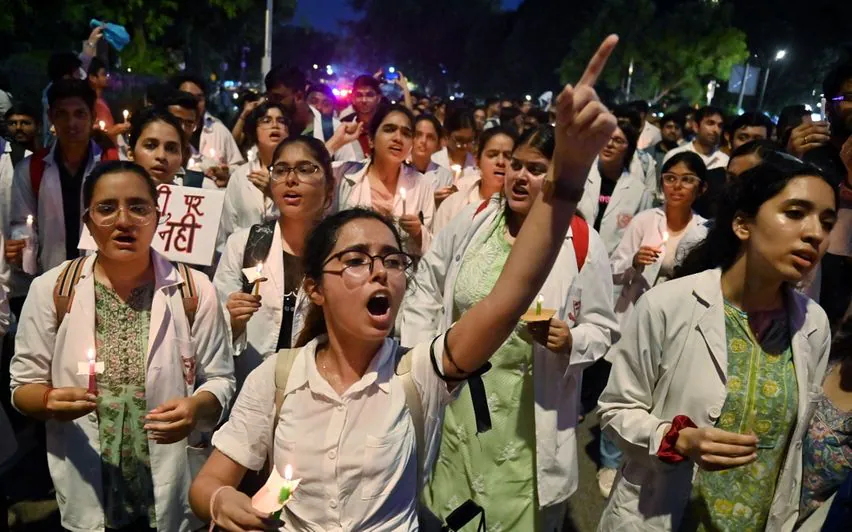India’s Supreme Court has taken significant action following the recent rape and murder of a trainee doctor in Kolkata by forming a national task force of doctors. This task force will focus on making recommendations to enhance the safety of healthcare workers across the country, responding to widespread public outrage and nationwide protests.
The Supreme Court’s initiative underscores the urgent need for guidelines to protect medical professionals, particularly women, in their workplaces.
Chief Justice Dhananjaya Yeshwant Chandrachud emphasized that ensuring the safety of doctors, especially female doctors, is a matter of national importance and equality. He stressed that the country cannot afford to wait for another tragedy before taking action.
This decision follows days of protests by doctors and healthcare workers who have been expressing their frustration and concern through candlelight marches and by temporarily halting non-emergency care. These protests highlight the ongoing risks faced by healthcare professionals in India.

India’s Supreme Court Forms Task Force to Boost Healthcare Worker Safety After Kolkata Rape and Murder
The horrific incident at R.G. Kar Medical College and Hospital, where a 31-year-old trainee doctor was raped and murdered, has brought the issue of violence against women back into the spotlight.
A police volunteer has been arrested and charged with the crime, but the incident has sparked widespread anger and demands for justice, particularly in Kolkata, where thousands of people have taken to the streets. The protests have underscored the need for stronger protective measures for both women and healthcare workers in India.
This case has drawn comparisons to the infamous 2012 gang rape and murder of a student on a bus in Delhi, which led to the implementation of tougher laws, including harsher penalties and the creation of fast-track courts for rape cases.
However, despite these legal reforms, sexual violence against women remains a pervasive issue in India. The recent crime has once again highlighted the gaps in enforcement and the need for more effective protection.
The urgency of the situation is further underscored by recent statistics, with over 31,000 rape cases reported in 2022, marking a 20% increase from the previous year. These figures reflect the ongoing challenge of addressing sexual violence in India, despite the legal advancements made in the past decade.
The formation of the national task force is a critical step towards addressing the safety concerns of healthcare workers and ensuring that such tragedies are prevented in the future.























